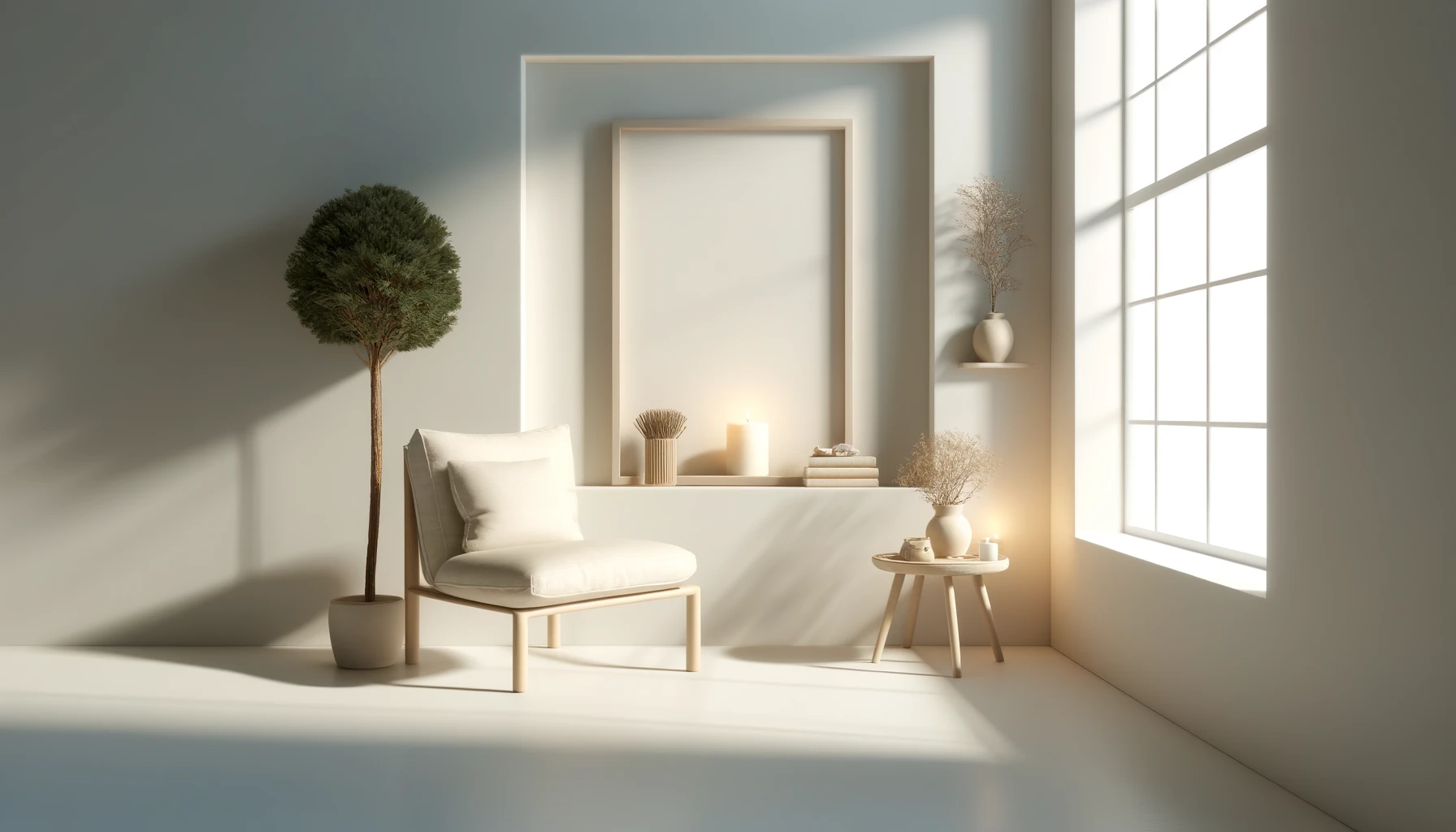In a world full of noise, rush, and excess, our minds are constantly overstimulated. From overflowing inboxes to cluttered living spaces, it’s no wonder stress and anxiety are at an all-time high.
Minimalism offers more than just a clean space — it offers a clearer mind. By simplifying our surroundings and routines, we create room for calm, focus, and emotional well-being.
Here’s how embracing minimalism can have a powerful, positive effect on your mental health.
Clutter Creates Mental Chaos
Let’s start with a basic truth: your environment affects your mind. Studies have shown that visual clutter can:
- Increase cortisol (the stress hormone)
- Reduce focus and productivity
- Trigger feelings of guilt, anxiety, and overwhelm
A cluttered home often leads to a cluttered mind. Every object you see requires mental processing — even if it’s unconscious. The more stuff in your space, the more distracted and mentally tired you feel.
Minimalism Reduces Decision Fatigue
Ever felt exhausted by the number of small decisions you make each day?
- What to wear
- What to eat
- What to do next
- Where to put your keys
This is called decision fatigue, and it’s real. The more choices you face, the harder each one becomes.
Minimalism helps by narrowing the options:
- A simplified wardrobe means quicker, stress-free mornings
- A minimal kitchen setup makes meal prep faster
- Organized spaces help you find what you need instantly
Fewer choices = less stress.
Clear Spaces Create Mental Clarity
Walking into a room with clean surfaces, open space, and intentional objects does something powerful: it makes you feel at ease.
Your brain doesn’t have to work overtime. You’re not being pulled in a hundred directions by “stuff.”
This physical simplicity often leads to:
- Improved concentration
- Better sleep
- More mindful thinking
- Increased creativity
It’s like giving your brain room to breathe.
Letting Go Builds Emotional Resilience
Decluttering is an emotional process. You might feel guilt, attachment, or fear when letting go of certain items. But the act of releasing them can be deeply healing.
You learn to:
- Detach from the past
- Let go of “what if” thinking
- Focus on the present and future
- Build confidence in your decision-making
Minimalism teaches you that your identity and worth aren’t tied to your belongings. That’s a powerful mindset shift.
Minimalism Encourages Presence
When you’re not constantly managing, cleaning, or organizing “stuff,” you gain time and mental space to simply be.
- Be with your loved ones
- Be present with your thoughts
- Esteja envolvido no que você está fazendo
- Be intentional with how you spend your time
Presence is one of the most healing gifts you can give yourself — and minimalism creates the space for it.
Simplicity Brings Freedom from Consumer Pressure
We live in a culture that constantly tells us we need more:
- More clothes
- More gadgets
- More décor
- More experiences
This never-ending chase creates anxiety, comparison, and dissatisfaction.
Minimalism breaks the cycle. It helps you:
- Focus on what you already have
- Spend more intentionally
- Stop comparing your life to others
- Feel more content with less
That shift can drastically reduce financial stress and the fear of missing out (FOMO).
Routine Simplification Helps Anxiety
Minimalist living extends beyond your physical space — it also affects how you structure your time.
- Menos compromissos = menos estressores
- Streamlined routines = more predictability
- Fewer distractions = better focus on self-care
When you remove the unnecessary from your day, you create space for what actually restores you — rest, connection, creativity, and mindfulness.
Minimalism Creates Emotional Safety in Your Space
Your home should feel like a safe retreat, not a source of stress. Minimalism helps you create a space where:
- Everything has a purpose
- Há menos para limpar, gerenciar e consertar
- You feel calm and in control
This kind of environment supports better mental health — especially if you deal with anxiety, depression, or overwhelm.
Less Stuff = More Energy
Mental health isn’t just about how we feel — it’s also about how much energy we have to engage with life.
Uma vida desordenada drena energia. Um simplificado o restaura.
When you have:
- Fewer distractions
- Clearer priorities
- Less to clean, fix, and worry about
…you naturally have more energy to invest in the things and people you love.
Final Thoughts: Minimalism Is a Form of Self-Care
At the end of the day, minimalism is not about restriction. It’s about freedom.
Freedom from chaos.
Freedom from stress.
Freedom from unrealistic expectations.
Minimalism is one of the most compassionate things you can do for your mind. It’s a way to protect your peace, honor your limits, and focus on what truly matters.
And when your mind feels clear and supported, everything else becomes a little easier.

